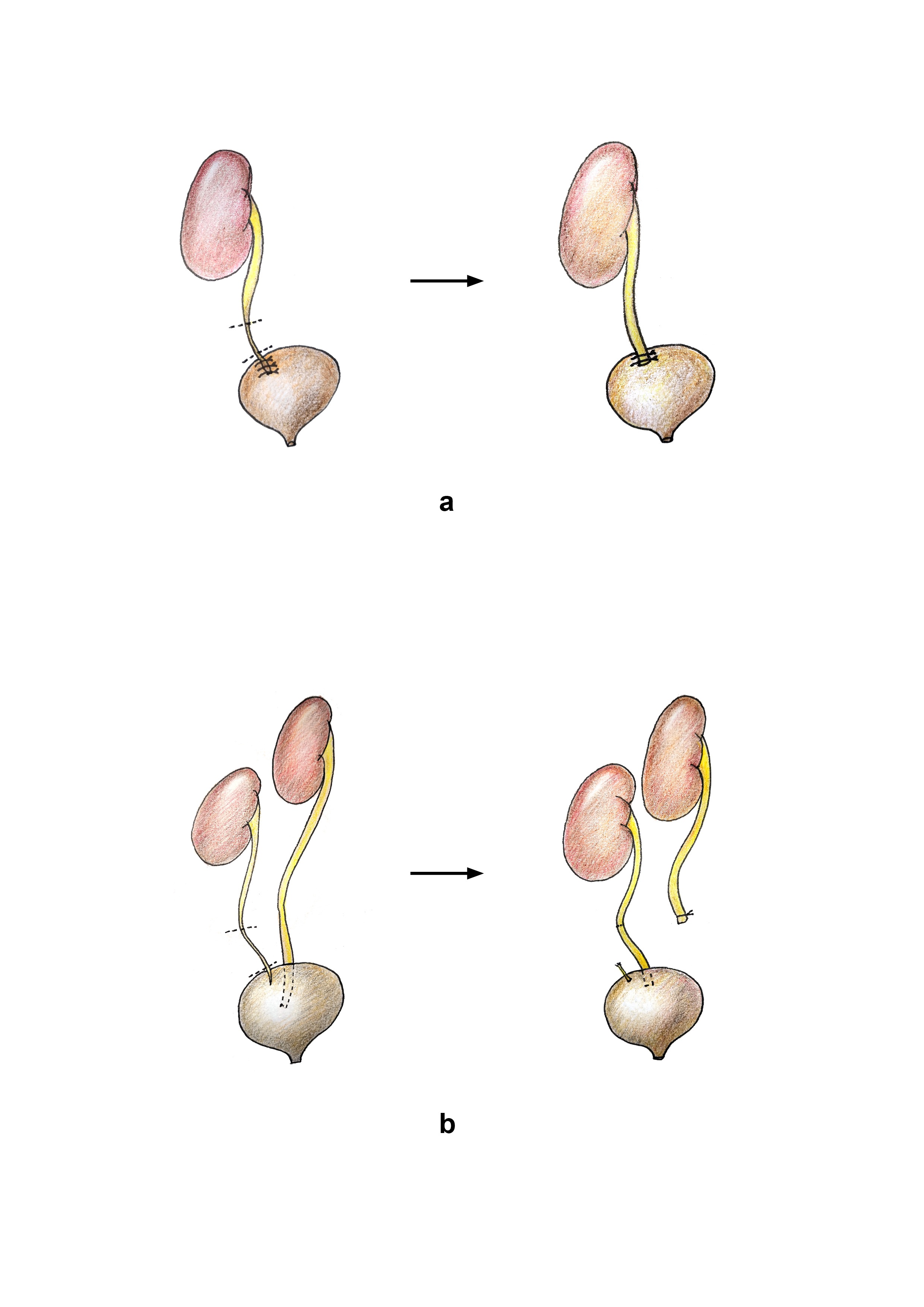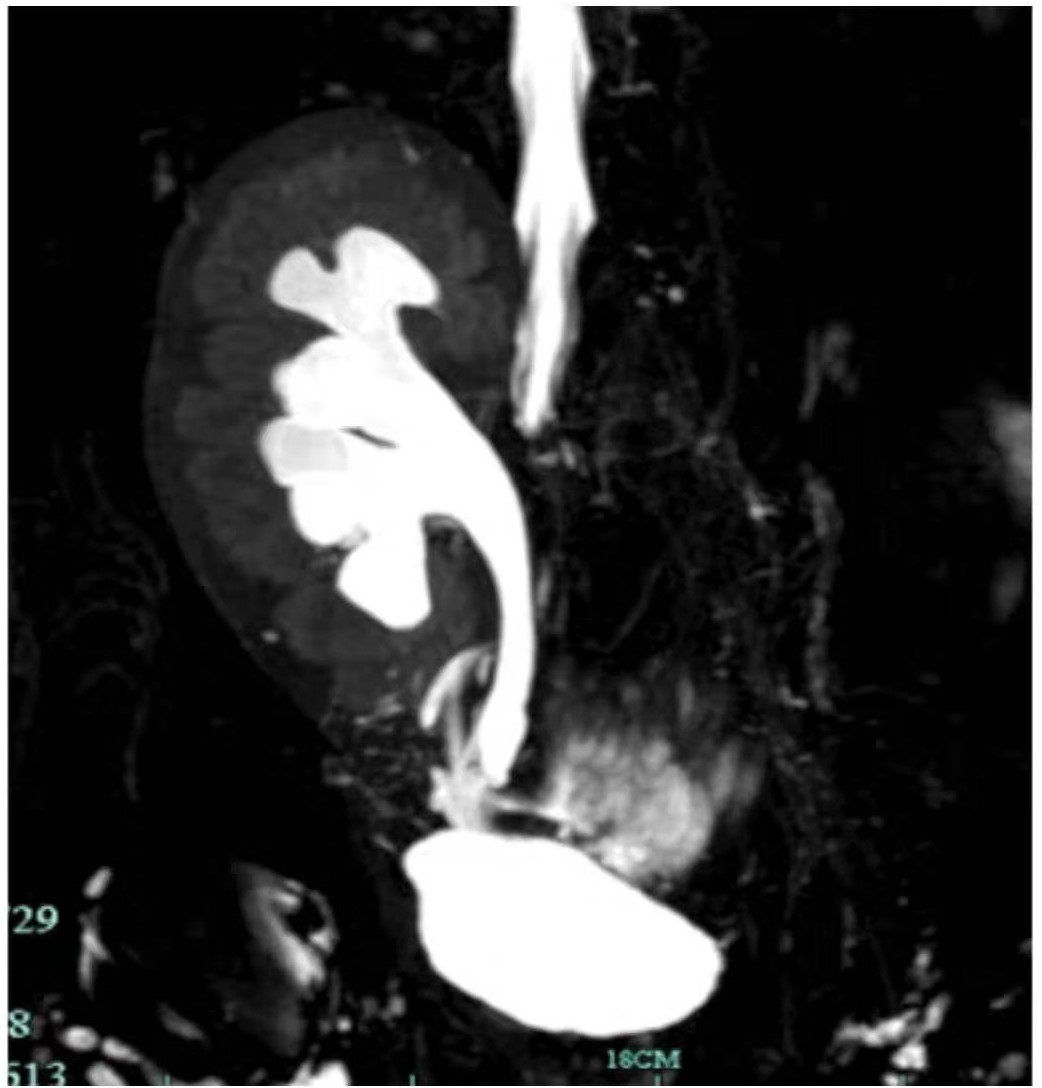Perfect Outcome of Ureteral Stenosis after Small Incision Surgical Treatment Under Magnetic Resonance Urography Localization in Kidney Transplant Patients: A Retrospective Matched Cohort Study
Kidney Disease Center, First Affiliated Hospital of Zhejiang University, Hangzhou, China
Meeting: 2020 American Transplant Congress
Abstract number: 557
Keywords: Magnetic resonance imaging, Surgical complications, Survival
Session Information
Session Time: 3:15pm-4:45pm
 Presentation Time: 3:51pm-4:03pm
Presentation Time: 3:51pm-4:03pm
Location: Virtual
*Purpose: This study aimed to evaluate the outcome of ureteral stenosis after treatment with small incision open surgery under Magnetic Resonance Urography (MRU) localization in renal transplant patients.
*Methods: This retrospective matched cohort study assessed 90 of 3110 consecutive kidney transplant recipients who developed postoperative ureteral stenosis. Data were collected between January 2010 and December 2018. Ureteral stenosis was detected by ultrasound and confirmed by MRU. Ureteral stenosis segment was positioned on MRU images and make marks on the patient’s body surface before surgery. All patients underwent small incision surgical treatment, the ureteral stricture was found according to the location during the operation. Outcomes were compared with those of a matched control group of transplant recipients with no history of ureteral stenosis.
*Results: Three thousand one hundred and ten renal transplants were performed during the study period. Ninety patients (2.9%) required surgical repair of a ureteral stricture. Eighty-two cases (91.1%) were reconstructed by reimplantation to the bladder, and eight (8.9%) were anastomosed to the native ureter. The overall success was 100%, with graft function being salvaged in all cases and with no stricture recurrence after a mean follow-up of 43.0±16.9months. The complication rate was 5.1%. The average surgical time was 126.9±43.7min. The 9-year graft survival and patient survival were not significantly different between the study and control groups, with a graft survival of 95.6% and a patient survival of 98.9%.
*Conclusions: Small incision surgical reconstruction of the transplant ureter under MRI localization is safe and effective. Our analysis suggests that kidney recipients with ureteral stenosis should be managed with small incision surgery.
To cite this abstract in AMA style:
Liu G, Wang X, Peng W, Wang R, Huang H, Wu J, Chen J. Perfect Outcome of Ureteral Stenosis after Small Incision Surgical Treatment Under Magnetic Resonance Urography Localization in Kidney Transplant Patients: A Retrospective Matched Cohort Study [abstract]. Am J Transplant. 2020; 20 (suppl 3). https://atcmeetingabstracts.com/abstract/perfect-outcome-of-ureteral-stenosis-after-small-incision-surgical-treatment-under-magnetic-resonance-urography-localization-in-kidney-transplant-patients-a-retrospective-matched-cohort-study/. Accessed February 16, 2026.« Back to 2020 American Transplant Congress


